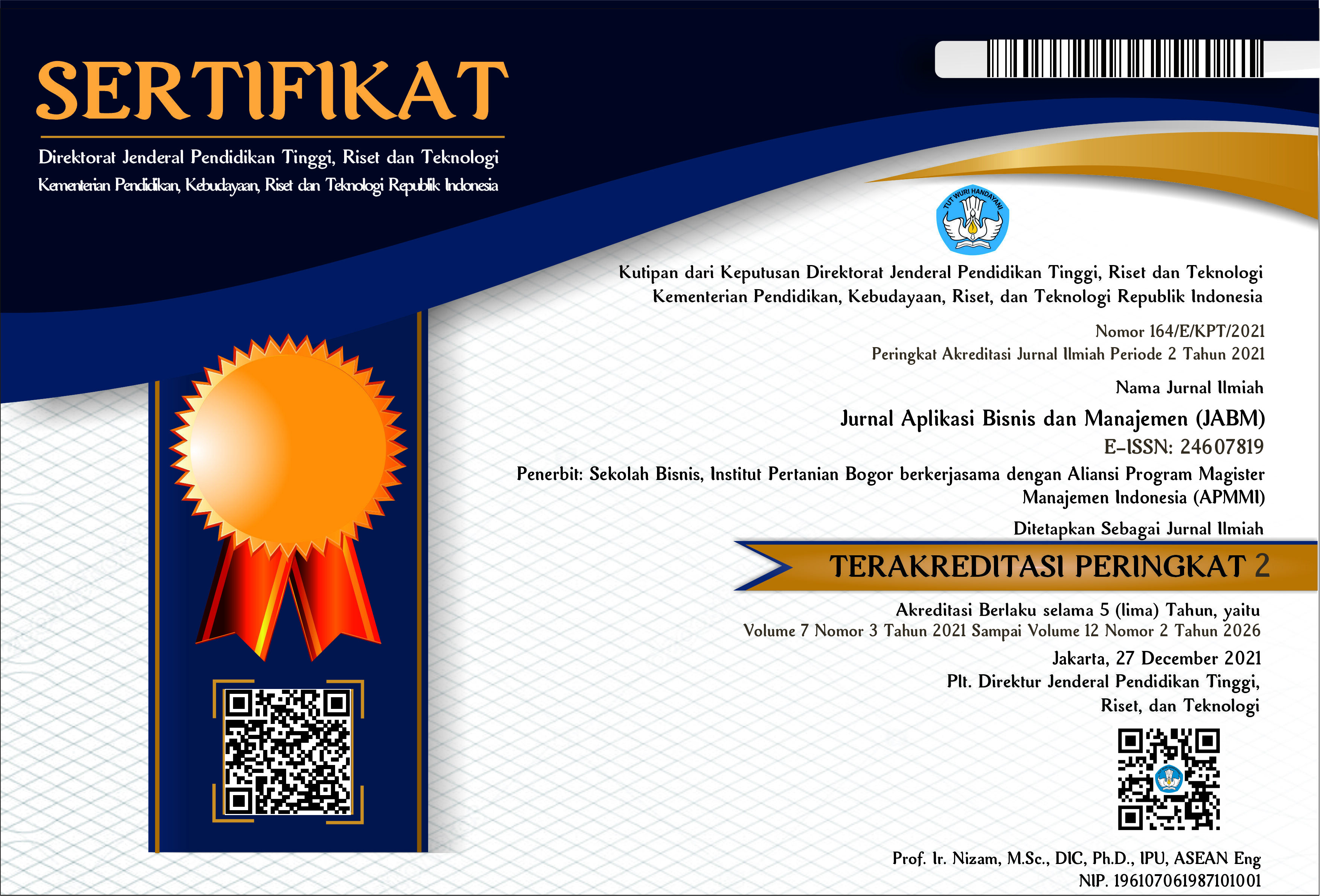The Integration of The Indonesian Stock Market With Developed Stock Markets: Pre- and Post-Covid-19 Pandemic
DOI:
https://doi.org/10.17358/jabm.11.1.284Abstract
Background: Stock portfolio management is essential for risk reduction and forecasting future stock market movements. When Covid-19 was declared a pandemic, stock markets worldwide, particularly the Indonesian stock market, faced significant declines. The Indonesian market dropped by 33%, mirroring a global trend of simultaneous declines, indicating a joint movement among stock markets.
Purpose: This study aims to investigate the integration of the Indonesian stock market with the ten largest stock markets by market capitalization globally, comparing the periods before and after the Covid-19 pandemic.
Design/Methodology/Approach: The study utilizes daily closing returns of stock market indices, divided into two periods: before the crisis (January 1, 2016 - December 31, 2019) and after the crisis (January 1, 2020 - December 31, 2023). Data is sourced from Yahoo Finance. The analysis combines Orthogonal Generalized Autoregressive Conditional Heteroscedasticity (OGARCH) and Principal Component Analysis (PCA).
Findings/Results: The results show that integration between stock markets was higher in the post-crisis period, indicating an increase in market integration after the Covid-19 pandemic. The Indonesian stock market remained segmented in both periods, exhibiting low correlation with other markets. European and American stock markets showed higher integration, while Asian markets were generally segmented.
Conclusion: Post-pandemic integration was higher than before, though the Indonesian stock market continued to have low correlation with other global markets, despite a slight increase in correlation over time.
Originality/Value: This research offers a novel comparative analysis of stock market integration, highlighting Indonesia’s persistent market segmentation despite global shifts before and after the Covid-19 pandemic.
Keywords: Covid-19, market capitalization, OGARCH, stock markets, PCA






